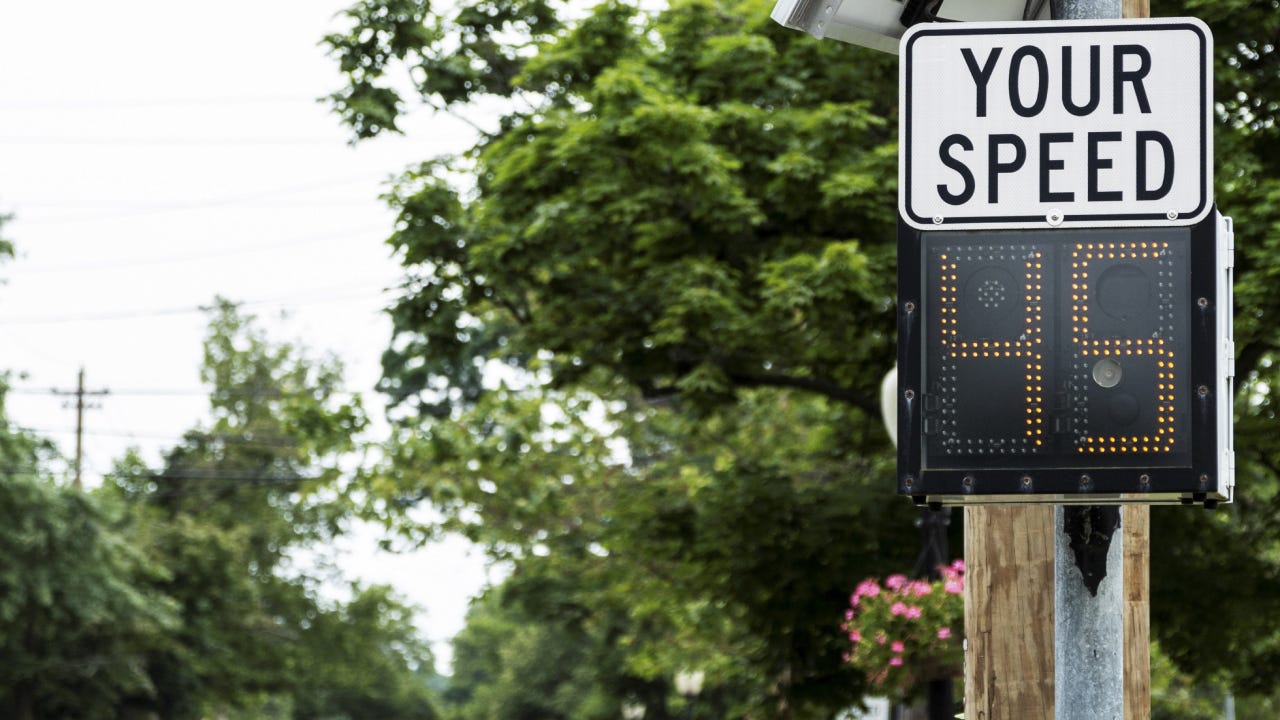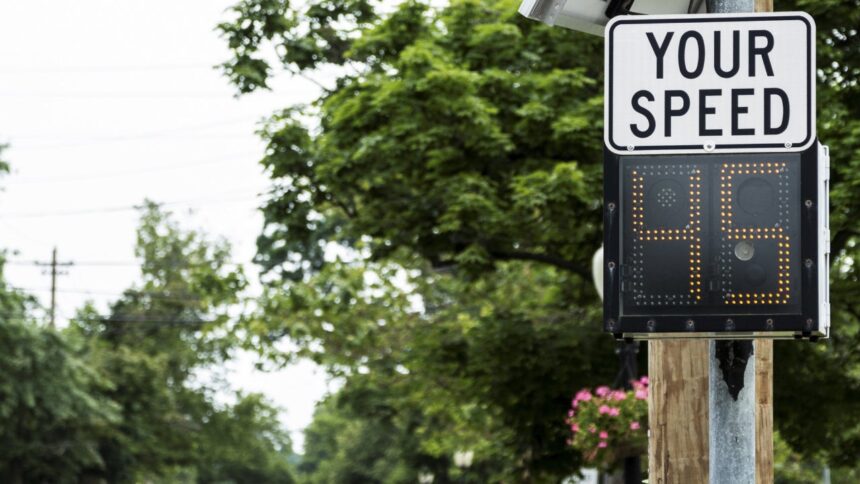
woodysphotos/getty images
New York speeding ticket fines range from $45 to $600 with drivers up to 11 penalty points. However, the cost of a speeding ticket in New York starts with a fine. If the fine is paid, it could increase insurance costs, an average annually of nearly $300. Understanding how speeding tickets affect New York insurance and how to maintain those tickets from your driving record will help you manage your insurance costs in this expensive state.
How much will my insurance go up after a speeding ticket in New York?
On average, Bankrate found that New York drivers pay about 7% for fully covered car insurance after being convicted of a single speeding violation. This is a relatively small increase compared to most states, but since New York’s average car insurance premiums are so high to begin with, a speeding conviction could mean you pay $25 a month for coverage.
There are a few things to keep in mind. First of all, your insurance premiums do not rise immediately after receiving your speeding ticket. You will receive a higher bill after pleading guilty and your insurance company reviews your updated driving record (usually before the date of your policy’s renewal).
Driving records are just one factor that insurance companies consider when setting fees and considering additional fees. For example, drivers of different ages may have different impacts on prices after speeding tickets, as shown in the table below.
| Driver Profile | Average annual full coverage premium |
|---|---|
| Clean Record | $4,192 |
| Adult driver, single speeding ticket | $4,489 |
| 18 years old, clean record | $9,646 |
| 18 years old, single speeding ticket | $9,960 |
How speeding tickets affected real driver insurance in New York
We turned to Reddit’s local forum for some insight into how real New Yorkers handled speeding tickets. Anonymous users of R/Askle and R/Hudsonvalley shared their experiences to avoid an increase in combat tickets and insurance in New York.
*The quotes and quotes contained on this page have been verified by our editorial team and are accurate as of the date of posting. Outlinked Content may contain opinions or opinions that do not reflect the views or opinions of the Bank.
How much does a speeding ticket cost, regardless of New York insurance?
In New York, travel violations usually remain on official driving records for about four years, over three more years, until the end of the year in which the violation occurred. A speeding conviction usually affects insurance due to similar time frames.
Insurance companies usually only check driving records (the driving records used to determine driving risk and calculate additional fees). When you receive your renewal schedule and your first ticket, you can expect additional fees to remain in your policy for 3-5 years.
How to avoid increased insurance after speeding tickets in New York
There are two ways to prevent or reduce insurance increases following speeding tickets in New York. Once your conviction is entered into your DMV file, you will maintain confidence from your records to fight tickets or reduce insurance costs.
Try to keep your speeding ticket from your driving record
If possible, maintaining speeding tickets from driving records is the most effective way to avoid an increase in premiums. Depending on your situation, there may be several ways to achieve this:
- Hire a traffic lawyer or ticketing service: One easy way to fight tickets is to hire an expert. You will need to pay legal fees in exchange for their services, but having a traffic lawyer may give you an advantage, especially if you don’t have a clean record before.
- Appears to court and pleads not guilty: If that’s your first ticket and you have the flexibility to appear in court, you may be able to reduce your ticket to an in-moving violation that does not affect your insurance.
- Ask about defensive driving courses: New York offers Points and Insurance Reduction Program (PIRP) courses that allow you to reduce your licensing points or avoid an increase in insurance.
After tickets, shop competitive rates
If you can’t maintain a speeding conviction from your record, or if you choose to eat the costs of a fine rather than paying for your lawyer, there are still ways to save on car insurance.
Shopping is the most effective way to compare prices and find a career at the best price after a speeding conviction. According to a Bankrate analysis, New York drivers switching careers after speeding tickets can save between $36 and $1,200 a year on car insurance.
Drive defensively to avoid future speeding tickets
A single speeding ticket can affect serious insurance, but repeated violations can further affect the cost of coverage. We will take steps to practice safe and defensive driving to avoid future tickets and keep rates affordable.
- Defensive driving course: Not only will you earn insurance discounts by taking DMV-approved defensive driving courses, but these courses will also help you understand and implement safe driving strategies.
- Telematics Discount: Many New York insurers offer insurance discounts based on some form of use. This allows you to track your driving habits and offer discount premiums when you avoid speeding and other unsafe behaviors. Using these apps will help you improve your driving and get discounts.
- Vehicle Technology: If your car has Intelligent Speed Assistance (ISA), Adaptive Cruise Control, or other safety technologies, make sure you understand how it works and keep it on to avoid speeding and other unsafe driving habits.
FAQ
Methodology
Bankrate uses Quadrant Information Services to analyze April 2025 fees for all ZIP codes and carriers in all 50 states. The cited fees are based on 40-year-old male and female drivers with clean driving records, good credits and the following full coverage limits:
- $100,000 per person physical injury liability
- $300,000 for each accident
- Liability for property damages of $50,000 per accident
- Uninsured driver physical injury for $100,000 per person
- Uninsured driver’s physical injury for $300,000 per accident
- $500 collision deduction possible
- Comprehensive $500 deduction
To determine the minimum coverage limit, bank rates used minimum coverage to meet the requirements of each state. Our base profile driver owns a 2023 Toyota Camry, commutes five days a week and drives 12,000 miles a year. Bundles and paperless billing discounts apply.
These are sample rates and should be used for comparison purposes only. Your quote is different.
If specified, the base profile has been modified with the following driver characteristics:










